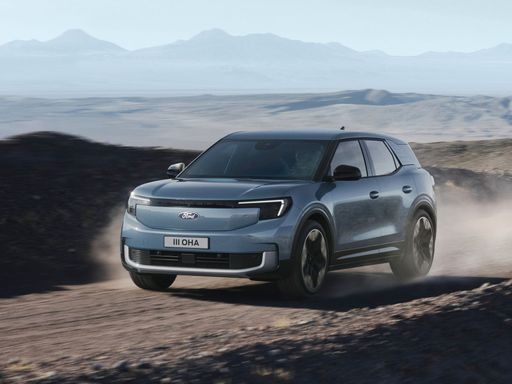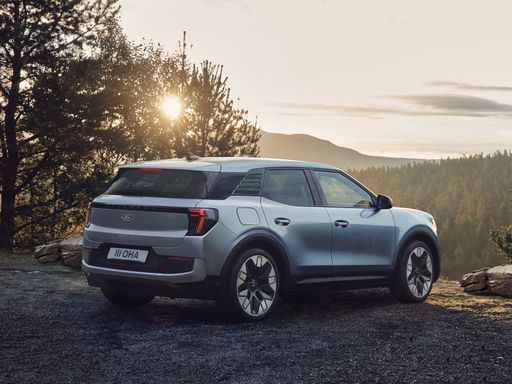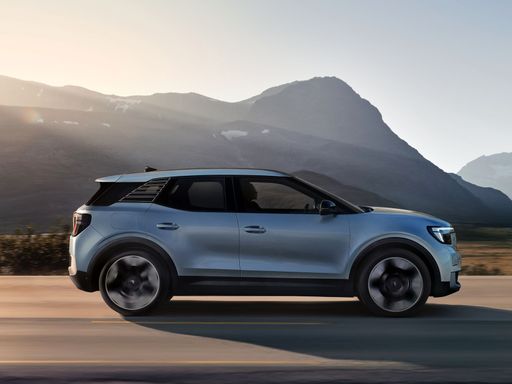Ford Explorer EV vs Kia PV5 - Differences and prices compared
Costs and Efficiency:
Price and efficiency are key factors when choosing a car – and this is often where the real differences emerge.
Kia PV5 has a minimal advantage in terms of price – it starts at 32800 £, while the Ford Explorer EV costs 34200 £. That’s a price difference of around 1380 £.
In terms of energy consumption, the advantage goes to the Ford Explorer EV: with 14.50 kWh per 100 km, it’s evident more efficient than the Kia PV5 with 19.80 kWh. That’s a difference of about 5.30 kWh.
As for range, the Ford Explorer EV performs noticeable better – achieving up to 602 km, about 202 km more than the Kia PV5.
Engine and Performance:
Power, torque and acceleration are the classic benchmarks for car enthusiasts – and here, some clear differences start to show.
When it comes to engine power, the Ford Explorer EV has a convincingly edge – offering 340 HP compared to 163 HP. That’s roughly 177 HP more horsepower.
In acceleration from 0 to 100 km/h, the Ford Explorer EV is clearly quicker – completing the sprint in 5.30 s, while the Kia PV5 takes 10.70 s. That’s about 5.40 s faster.
In terms of top speed, the Ford Explorer EV performs noticeable better – reaching 180 km/h, while the Kia PV5 tops out at 135 km/h. The difference is around 45 km/h.
There’s also a difference in torque: Ford Explorer EV pulls significantly stronger with 679 Nm compared to 250 Nm. That’s about 429 Nm difference.
Space and Everyday Use:
Beyond pure performance, interior space and usability matter most in daily life. This is where you see which car is more practical and versatile.
Seats: offers more seating capacity – vs .
In curb weight, Kia PV5 is barely noticeable lighter – 1860 kg compared to 1908 kg. The difference is around 48 kg.
In terms of boot space, the Kia PV5 offers clearly more room – 1320 L compared to 450 L. That’s a difference of about 870 L.
In maximum load capacity, the Kia PV5 performs decisively better – up to 4420 L, which is about 2998 L more than the Ford Explorer EV.
When it comes to payload, Kia PV5 distinct takes the win – 790 kg compared to 585 kg. That’s a difference of about 205 kg.
Who wins the race?
The Ford Explorer EV proves to be outperforms in nearly all aspects and therefore becomes our DriveDuel Champion!
Ford Explorer EV is the better all-rounder in this comparison.
 @ Ford Motor Company / Ford Media Center
@ Ford Motor Company / Ford Media Center
Ford Explorer EV
Costs and Consumption
View detailed analysis
Engine and Performance
View detailed analysis
Dimensions and Body
View detailed analysis
Ford Explorer EV
The Ford Explorer EV translates the familiar big‑American SUV presence into whisper‑quiet electric motoring, offering roomy seating and a tech‑forward cabin that will please families and road‑trippers alike. It drives with more composure than its boxy looks suggest, blending a comfortable ride and eager acceleration while undercutting the guilt of gas stops — a practical, modern alternative for buyers who want Explorer space with electric charm.
details @ Ford Motor Company / Ford Media Center
@ Ford Motor Company / Ford Media Center
 @ Ford Motor Company / Ford Media Center
@ Ford Motor Company / Ford Media Center
 @ Ford Motor Company / Ford Media Center
@ Ford Motor Company / Ford Media Center
Kia PV5
The Kia EV5 is an exciting new entrant in the landscape of electric SUVs, promising a blend of style and innovation that captures attention. It boasts a sleek and modern design that aligns with Kia's evolving aesthetic identity, blending practicality with eye-catching details. With its foray into the electric vehicle segment, the EV5 is set to offer a highly competitive option for those looking to embrace sustainable mobility without compromising on comfort or tech features.
details
 @ Ford Motor Company / Ford Media Center
@ Ford Motor Company / Ford Media Center
|
|
|
|
|
Costs and Consumption |
|
|---|---|
|
Price
34200 - 48800 £
|
Price
32800 - 38900 £
|
|
Consumption L/100km
-
|
Consumption L/100km
-
|
|
Consumption kWh/100km
14.5 - 17.2 kWh
|
Consumption kWh/100km
19.8 - 20.3 kWh
|
|
Electric Range
360 - 602 km
|
Electric Range
288 - 400 km
|
|
Battery Capacity
52 - 79 kWh
|
Battery Capacity
51.5 - 71.2 kWh
|
|
co2
0 g/km
|
co2
0 g/km
|
|
Fuel tank capacity
-
|
Fuel tank capacity
-
|
Dimensions and Body |
|
|---|---|
|
Body Type
SUV
|
Body Type
Cargo Van, Bus
|
|
Seats
5
|
Seats
2 - 5
|
|
Doors
5
|
Doors
4 - 5
|
|
Curb weight
1908 - 2179 kg
|
Curb weight
1860 - 2145 kg
|
|
Trunk capacity
445 - 450 L
|
Trunk capacity
1320 L
|
|
Length
4468 mm
|
Length
4695 mm
|
|
Width
1871 mm
|
Width
1850 - 1895 mm
|
|
Height
1630 - 1639 mm
|
Height
1923 mm
|
|
Max trunk capacity
1417 - 1422 L
|
Max trunk capacity
2300 - 4420 L
|
|
Payload
561 - 585 kg
|
Payload
505 - 790 kg
|
Engine and Performance |
|
|---|---|
|
Engine Type
Electric
|
Engine Type
Electric
|
|
Transmission
Automatic
|
Transmission
Automatic
|
|
Transmission Detail
Reduction Gearbox
|
Transmission Detail
Reduction Gearbox
|
|
Drive Type
Rear-Wheel Drive, All-Wheel Drive
|
Drive Type
Front-Wheel Drive
|
|
Power HP
170 - 340 HP
|
Power HP
121 - 163 HP
|
|
Acceleration 0-100km/h
5.3 - 8.7 s
|
Acceleration 0-100km/h
10.7 - 16.3 s
|
|
Max Speed
160 - 180 km/h
|
Max Speed
135 km/h
|
|
Torque
310 - 679 Nm
|
Torque
250 Nm
|
|
Number of Cylinders
-
|
Number of Cylinders
-
|
|
Power kW
125 - 250 kW
|
Power kW
89 - 120 kW
|
|
Engine capacity
-
|
Engine capacity
-
|
General |
|
|---|---|
|
Model Year
2024 - 2025
|
Model Year
2025
|
|
CO2 Efficiency Class
A
|
CO2 Efficiency Class
A
|
|
Brand
Ford
|
Brand
Kia
|
What drive types are available for the Ford Explorer EV?
The Ford Explorer EV is available as Rear-Wheel Drive or All-Wheel Drive.
The prices and data displayed are estimates based on German list prices and may vary by country. This information is not legally binding.
